-
 bitcoin
bitcoin $87959.907984 USD
1.34% -
 ethereum
ethereum $2920.497338 USD
3.04% -
 tether
tether $0.999775 USD
0.00% -
 xrp
xrp $2.237324 USD
8.12% -
 bnb
bnb $860.243768 USD
0.90% -
 solana
solana $138.089498 USD
5.43% -
 usd-coin
usd-coin $0.999807 USD
0.01% -
 tron
tron $0.272801 USD
-1.53% -
 dogecoin
dogecoin $0.150904 USD
2.96% -
 cardano
cardano $0.421635 USD
1.97% -
 hyperliquid
hyperliquid $32.152445 USD
2.23% -
 bitcoin-cash
bitcoin-cash $533.301069 USD
-1.94% -
 chainlink
chainlink $12.953417 USD
2.68% -
 unus-sed-leo
unus-sed-leo $9.535951 USD
0.73% -
 zcash
zcash $521.483386 USD
-2.87%
How much does it cost to mine a coin?
Understanding cryptocurrency mining costs, which can vary based on factors like electricity rates, hardware efficiency, and mining pool fees, is crucial for determining the profitability of mining operations.
Jan 10, 2025 at 06:55 am
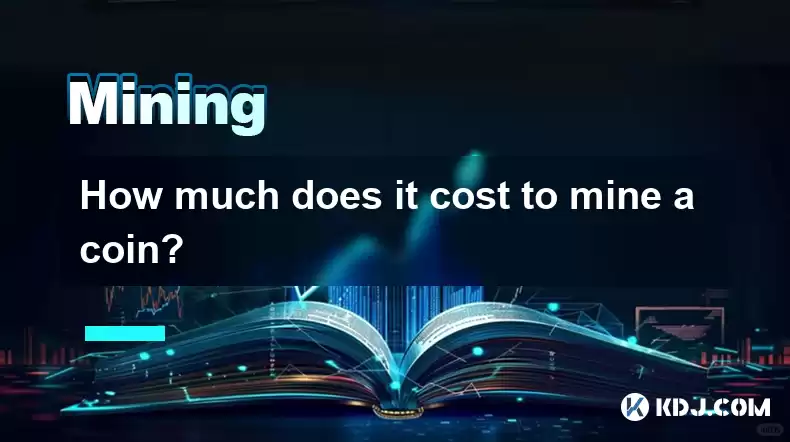
- Understanding cryptocurrency mining costs, including electricity, hardware, and pool fees
- Variations in mining costs depending on factors such as coin type, hardware efficiency, and electricity rates
- Utilizing mining calculators to estimate potential mining profits
Electricity is a significant expense in cryptocurrency mining, accounting for approximately 60-80% of total costs. The cost of electricity varies widely depending on the location, energy source, and time of day. Miners should research local electricity rates and consider using renewable energy sources, such as solar or wind power, to reduce their electricity bills.
2. Hardware Costs:Mining hardware, such as ASICs (Application-Specific Integrated Circuits) and GPUs (Graphics Processing Units), represents another substantial expense. The type of coin being mined determines the most suitable hardware. Bitcoin mining requires specialized ASICs, while coins like Ethereum can be mined using both ASICs and GPUs. Miners must consider the upfront hardware costs and the efficiency of the hardware in terms of hash rate and power consumption.
3. Pool Fees:Mining pools provide a collaborative platform for miners to combine their hash power and increase their chances of finding a block. In return, miners pay a fee to the pool operator, typically ranging from 1% to 3%. These fees compensate pool operators for maintaining the infrastructure and distributing rewards to participating miners.
4. Coin Difficulty:The difficulty of mining a particular coin refers to the computational power required to solve the complex mathematical puzzle involved in finding a block. As more miners join a network, the difficulty increases to maintain a constant block time. This means that older, less efficient hardware may become obsolete as difficulty levels rise, while newer, more powerful hardware is required to stay competitive.
5. Mining Calculators:Mining calculators are online tools that provide estimates of potential mining profits based on factors such as coin difficulty, hash rate, electricity costs, and hardware efficiency. These calculators can help miners determine the feasibility of their mining operations and compare different coins and hardware options.
FAQs:- Q: How much does it cost to mine one Bitcoin?A: The cost of mining one Bitcoin varies depending on factors such as electricity rates, hardware efficiency, and difficulty levels. According to current estimates, it costs approximately $5,000 - $10,000 to mine one Bitcoin.
- Q: What is the most profitable cryptocurrency to mine?A: The most profitable cryptocurrency to mine depends on factors such as coin price, difficulty level, and availability of hardware. Some popular and potentially profitable coins to consider include Bitcoin, Ethereum, and Litecoin.
- Q: Can I mine cryptocurrency on a home computer?A: It is possible to mine some cryptocurrencies, such as Monero or Ravencoin, on a home computer, but it may not be profitable due to limited processing power and high electricity costs.
Disclaimer:info@kdj.com
The information provided is not trading advice. kdj.com does not assume any responsibility for any investments made based on the information provided in this article. Cryptocurrencies are highly volatile and it is highly recommended that you invest with caution after thorough research!
If you believe that the content used on this website infringes your copyright, please contact us immediately (info@kdj.com) and we will delete it promptly.
- Ripple, Banks, & Cash: The Digital Treasury Revolution and Washington's New Blueprint
- 2026-01-31 22:40:02
- Bitcoin's High-Wire Act: Leverage Ratio Spikes, Volatility Looms on the Horizon
- 2026-01-31 22:20:02
- Spur Protocol's SON Token: A Listing Saga and Its Murky Price Outlook
- 2026-01-31 22:15:04
- Bitcoin Price Breakdown Looms as Institutions Pull Billions: BTC Faces Critical Juncture
- 2026-01-31 22:10:07
- Tria Airdrop's Second Act: Season 2 Kicks Off, XP Details Unveiled
- 2026-01-31 22:05:08
- Silver Liquidation Raised Eyebrows: What Happened, and What It Means
- 2026-01-31 22:00:07
Related knowledge
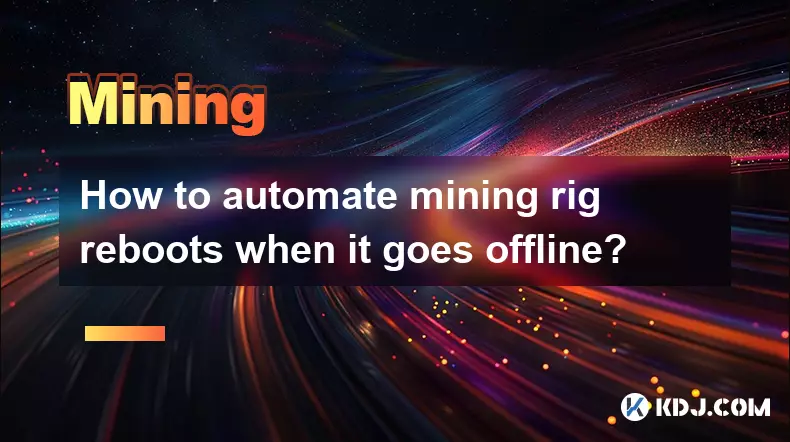
How to automate mining rig reboots when it goes offline?
Jan 23,2026 at 11:00pm
Monitoring System Integration1. Deploy a lightweight agent on the mining rig’s host OS that continuously reports hash rate, GPU temperature, and pool ...
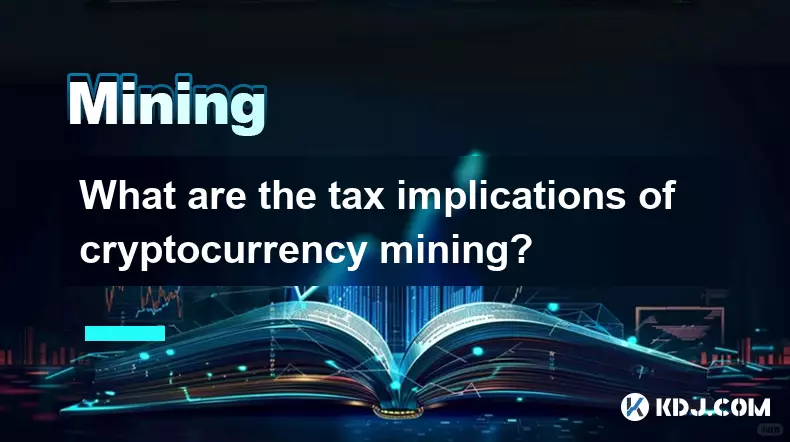
What are the tax implications of cryptocurrency mining?
Jan 23,2026 at 02:40am
Tax Treatment of Mining Rewards1. Cryptocurrency received as a reward for mining is treated as ordinary income by the IRS at the fair market value on ...
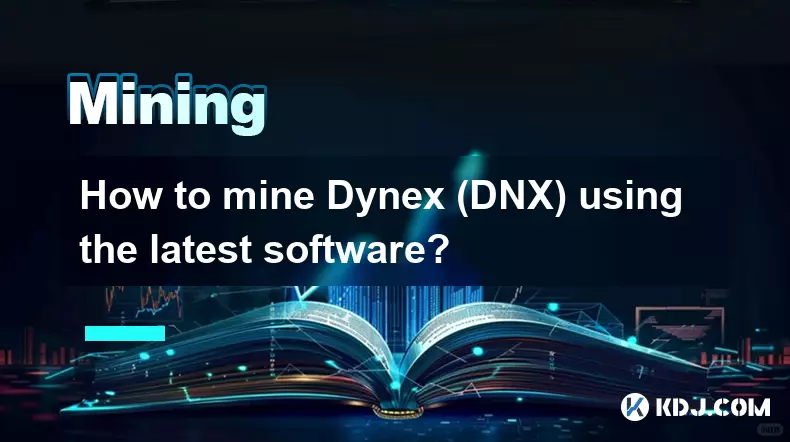
How to mine Dynex (DNX) using the latest software?
Jan 22,2026 at 10:00am
Understanding Dynex Mining Fundamentals1. Dynex (DNX) operates on a proof-of-work consensus mechanism optimized for neuromorphic computing workloads, ...
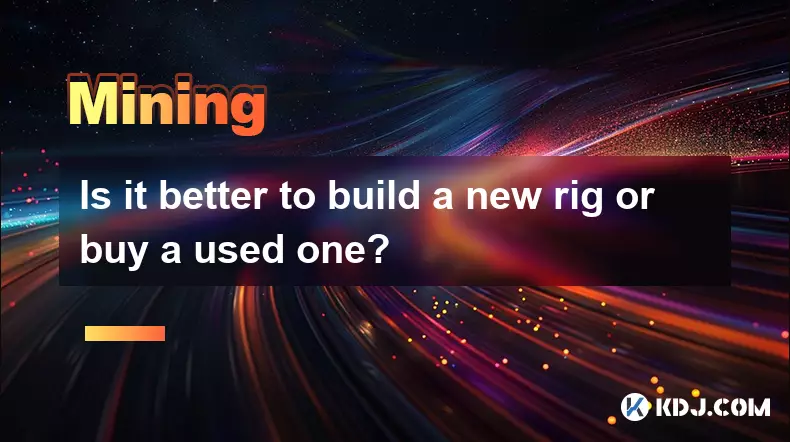
Is it better to build a new rig or buy a used one?
Jan 24,2026 at 10:20pm
Cost Efficiency Analysis1. New mining rigs come with manufacturer warranties, typically covering components for one to three years. This assurance red...
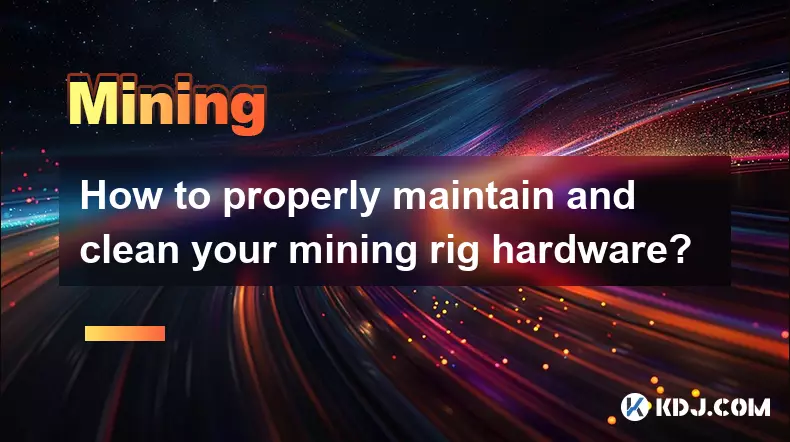
How to properly maintain and clean your mining rig hardware?
Jan 19,2026 at 11:00am
Cooling System Inspection and Optimization1. Dust accumulation inside fans and heatsinks directly reduces thermal dissipation efficiency, leading to h...
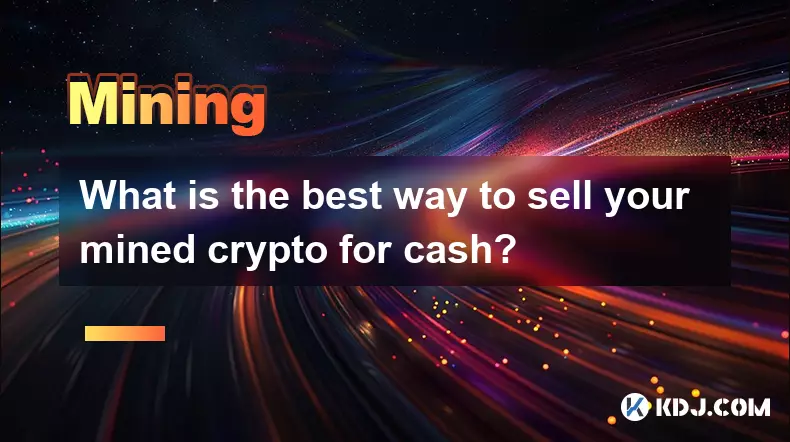
What is the best way to sell your mined crypto for cash?
Jan 20,2026 at 02:59am
Choosing the Right Exchange Platform1. Select an exchange with strong regulatory compliance and a proven track record of secure withdrawals. Platforms...

How to automate mining rig reboots when it goes offline?
Jan 23,2026 at 11:00pm
Monitoring System Integration1. Deploy a lightweight agent on the mining rig’s host OS that continuously reports hash rate, GPU temperature, and pool ...

What are the tax implications of cryptocurrency mining?
Jan 23,2026 at 02:40am
Tax Treatment of Mining Rewards1. Cryptocurrency received as a reward for mining is treated as ordinary income by the IRS at the fair market value on ...

How to mine Dynex (DNX) using the latest software?
Jan 22,2026 at 10:00am
Understanding Dynex Mining Fundamentals1. Dynex (DNX) operates on a proof-of-work consensus mechanism optimized for neuromorphic computing workloads, ...

Is it better to build a new rig or buy a used one?
Jan 24,2026 at 10:20pm
Cost Efficiency Analysis1. New mining rigs come with manufacturer warranties, typically covering components for one to three years. This assurance red...

How to properly maintain and clean your mining rig hardware?
Jan 19,2026 at 11:00am
Cooling System Inspection and Optimization1. Dust accumulation inside fans and heatsinks directly reduces thermal dissipation efficiency, leading to h...

What is the best way to sell your mined crypto for cash?
Jan 20,2026 at 02:59am
Choosing the Right Exchange Platform1. Select an exchange with strong regulatory compliance and a proven track record of secure withdrawals. Platforms...
See all articles





















![Ultra Paracosm by IlIRuLaSIlI [3 coin] | Easy demon | Geometry dash Ultra Paracosm by IlIRuLaSIlI [3 coin] | Easy demon | Geometry dash](/uploads/2026/01/31/cryptocurrencies-news/videos/origin_697d592372464_image_500_375.webp)




















































